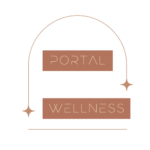There are so many therapeutic techniques, modalities and approaches these days, it can be overwhelming for the consumer…as well as for the therapist. These techniques tend to come in and out of popularity. Examples of trending modalities are currently EMDR, Somatic Experiencing, IFS, Lifespan Integration, brainspotting…etc. The list goes on.
And although I pull from these and many techniques frequently…I have never decided to get certified in them. Why?
Who is creating these certifications?
These training programs are often researched, created, packaged and sold primarily by people with a lot of privilege (most often tend to be straight white cis men (and some women)). There is not a lot of diversity of lived experience or positionality. Even though I don’t necessarily have specific issues with some of these founders (some of them I quite like), I feel that there is no specific technique I am yet willing to invest my full self in because I sense that it does fully encompass the depth of approach that I really resonate with. These approaches are often individualistic focused without a significant power analysis and liberation focus for them to seem applicable enough or for me to fully invest in.
What about the research?
Although these techniques are “well researched” – the research tends to focus on western populations, and those available to be studied. This means that the research does not always generalize well to the real life environments and experiences of the general public or exploited populations. Also, some of these modalities are really not as well researched as you would think. For example, there is research and review coming out now about EMDR that strongly suggests the reason it is effective does not have to do with the eye movement and everything to do with the exposure to the trauma that comes with that experience.
Gatekeeping and Colonial Capitalism.
These programs tend to function in very capitalistic ways. The technique is turned into a commodity where it is packaged, split into various trainings, sold as the “best cutting edge modality”, turned into certification programs where therapists pay an exorbitant amount of money and time to be certified, then have to pay for supervision after… it becomes a whole business.
For example: The cost to get certified in Somatic Experiencing is a little over 9,000, but then you need to pay 12 personal sessions and 18 consultation hours.It just leaves a bad taste in my mouth.
I have found in these programs there is a lot of gatekeeping and ego involved. Criticism of the theory is often shut down, and it restricts a holistic approach.
Much of these techniques tend to repackage Indigenous knowing. It’s not that I have any large problems with these specific founders or the modalities themselves. However when it comes down to it modalities like Somatic Experiencing (which is a great modality!) draw on Indigenous knowledge and understanding of body based approaches. Although I really enjoy a lot Peter Lavine’s work, systemically, Indigenous ways of healing are still appropriated, cherry picked for others profit, and sold without consent.
There is an argument to be made about paying trainers for their time, wanting people to be well versed in the method, and wanting to potentially prevent harm caused by untrained therapists.
I’m not pretending that I know what the perfect solution is, but I do think that we can do better, that we have to start rethinking this. And I can’t bring myself to participate in how the current systems to get certified in these techniques is set up.
Therapists can get pigeonholed into one technique..
Because many of these modalities require a lot of money and time, it tends to force therapists into choosing and focusing on one “tool” in the tool box. I found that it can also have the side effect of supporting a type of thinking that there is one right way to heal. We can tend to get over focused on one approach. I have found that having an eclectic practice based in relationality, and understanding of person in environment helps me be flexible to the individual needs of my client.
Its the relationship that matters..not necessarily the technique
One thing the research is CLEAR on. Is that the relationship is the largest factor in predicting change and positive outcomes in therapy. When I think about where I want to invest my learning, I lean towards ways to help me deepen and better support the therapeutic relationship.
No technique is a cure..
It’s good to have tools. But sometimes I feel like the mental health field leans on these tools as cures and solutions as a way to bypass and avoid really understanding and doing the work we (as therapists) need to do to build supportive life changing relationships with people, as well as looking at what ACTUALLY needs to happen for people to heal – which is SYSTEMIC CHANGE.
As I have explored many modalities, there are many elements in common. Many of them are expressions of similar base principles. Certain modalities work better for some than others. So when you are looking for therapeutic support, don’t be afraid to experiment, remember that there is no cure – because we still live in a highly traumatic society, and there are many ways to approach your wellbeing.
Maybe someday I will get certified in something. I have not yet truly resonated with a modality enough to invest my full self in it. If you would like to know more about which modalities and theories I pull from you can read about them here. In the meantime instead of becoming certified I spend a lot of time reading, taking a variety of trainings, and trying to support the work of and learn from people (who are not all mental health experts) but who have lived experience and are working from an anti oppression lens towards collective healing.


